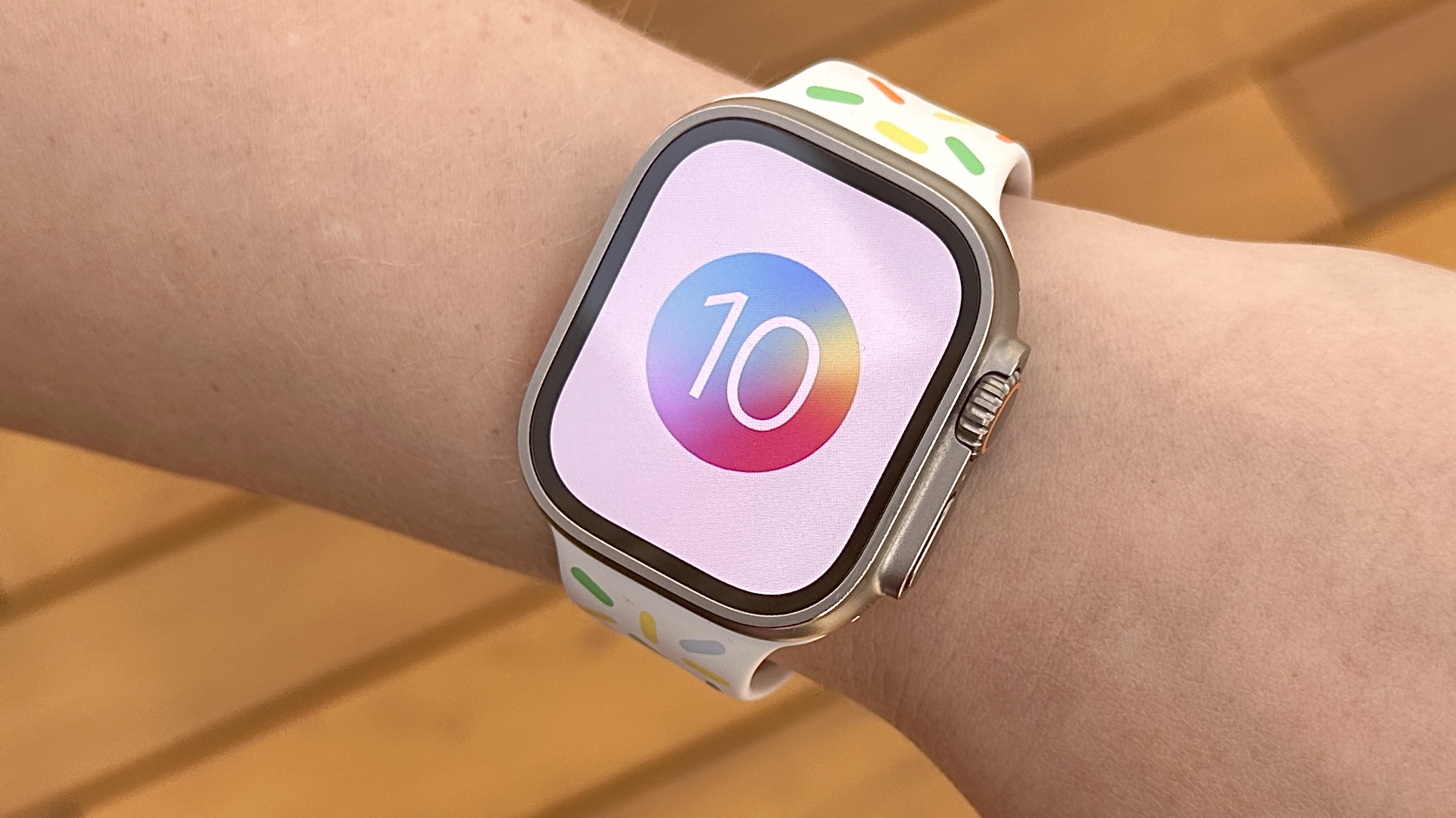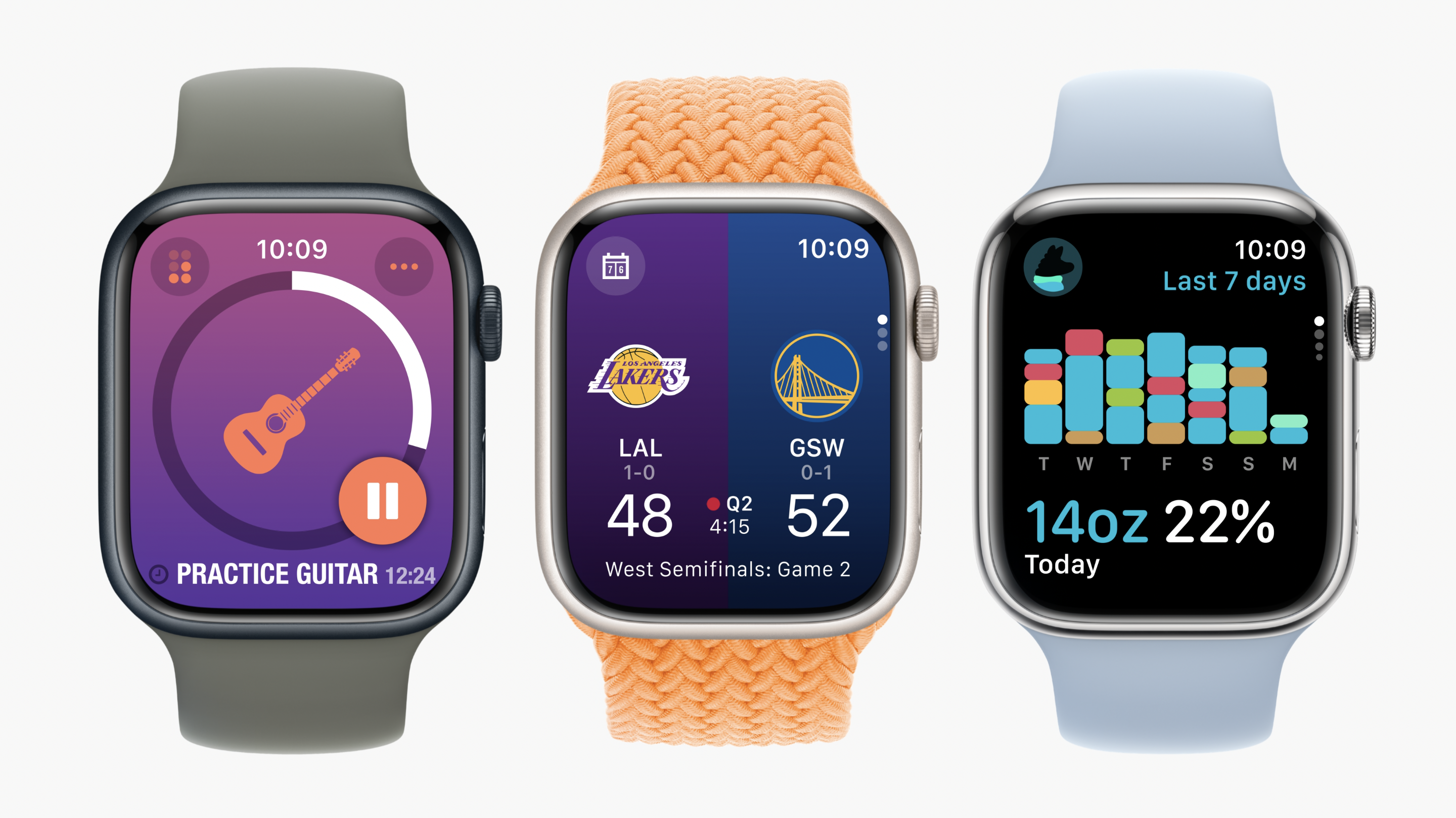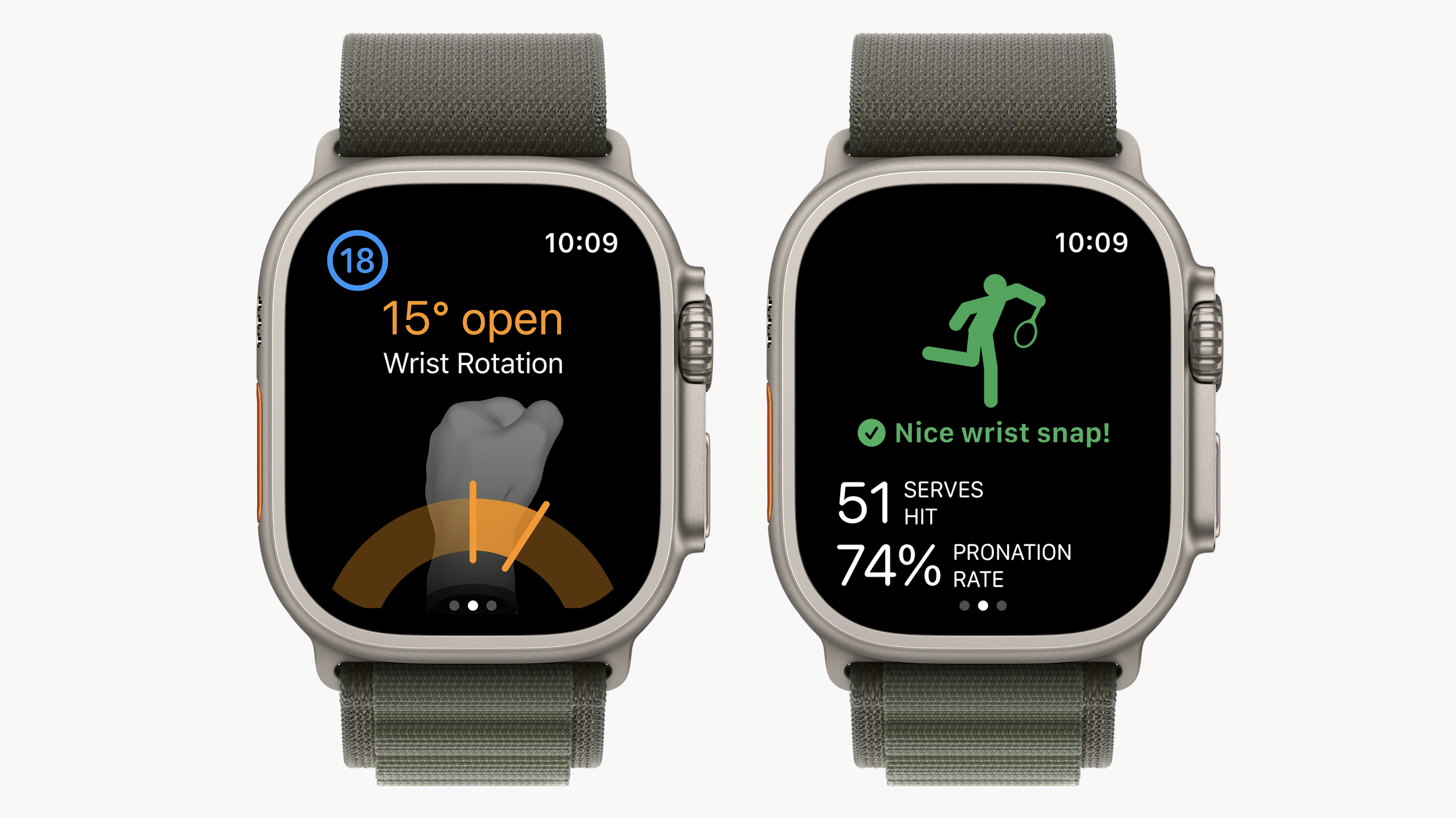watchOS 10 exclusive: These are the biggest Apple Watch upgrades powered by new developer APIs
The most "seamless" Apple Watch experience yet

Update: The watchOS 10 public beta is available now, meaning you're able to try out the new Apple Watch features discussed below ahead of full availability in the fall.
With watchOS 10, the Apple Watch is receiving its most significant upgrade in years. And while the upcoming software update has plenty of fresh features for users to discover, it’s the new set of versatile developer APIs that should make using an Apple Watch more frictionless than it’s ever been.
While native Apple Watch apps are central to the user experience, it’s often the best Apple Watch apps from third-party developers that let someone make the most of their smartwatch. For these developers working with watchOS 10, Apple has introduced new foundational app layouts in Swift UI, Smart Stack support in WidgetKit, and a High Frequency Motion API leveraging the accelerometers in the current-gen Apple Watch devices.
“watchOS 10 is making the user experience a lot more seamless, where users now when they raise their wrist, they'll be able to get more information at the glance than ever before," said Eric Charles, Worldwide Product Marketing, Apple.

The streamlined app layouts — split into Dial, Infographic and List designs — give developers the ability to make their apps more glanceable. The layouts should not only maximize use of the display space, but also provide a more uniform look and feel to Apple Watch apps than before. Plus, the stronger emphasis on vertical pagination encourages using the Digital Crown instead of obstructing the screen with your finger, showing further appreciation for screen space.
“We're really leaning into the idea of using the entire display to create more places for content,” Charles said. “This has shown really well in an app like Weather, where now you can see AQI, you can see wind speed, you can see your up-to-date data without having to go deeper into the app. It increases discoverability, it increases glanceability.”
Welcome to the Smart Stacks era

Smart Stacks perhaps embodies this notion of glanceability more than any new feature to ever reach the Apple Watch. Using machine learning, you’ll be shown information that’s relevant to you based on factors such as the time of day, so you get info when you need it. I also learned that developers who already use WidgetKit code for iOS shouldn’t struggle to adapt it for watchOS, suggesting we won’t see a delay in third-party apps taking advantage of Smart Stacks.
Get instant access to breaking news, the hottest reviews, great deals and helpful tips.
The Smart Stack is launched from your watch face with the Digital Crown. But that’s not the only button change in watchOS 10 — the side button now launches the Control Center. (Currently, you’ll find the compiled settings hub when you swipe down on your home screen.)
As someone who’s become familiar with the Control Center’s current location, I wondered if Apple is worried about a learning curve for users who download the latest software version.
“I think it’s going to be really easy for people to parse out, especially for something as simple as Control Center,” Charles said. “That convenience and expediency will make it really easy to sort of do that mental map to be like, ‘this button now brings up this thing.’ We think that the clarity of having the Digital Crown for apps and the side button for the Control Center will be really easy for our consumers to adapt to.”
Making the Apple Watch a smarter sports watch

In addition to updated app layouts and new navigational experiences, there are two new developer APIs that look to position the Apple Watch as a more capable sports watch.
The High Frequency Motion API lets developers pull data from the Apple Watch Series 8, Apple Watch Ultra and Apple Watch SE (2022)’s three-axis gyroscopes, which captures angular velocity at 4,000 degrees per second. The watch accelerometer's max sample rate is 800 Hz, or 800 times per second. Before, the max sample rate was just 100 Hz.
As a result, developers can take precise insights into a user’s hand and wrist movement and translate them into digestible analysis and even actionable advice. For someone like me who loves playing golf, but definitely needs coaching, the High Frequency Motion API empowers apps like Golf Shot to help me improve my game. Previously, I didn’t see my Apple Watch as a true golf watch, but now that could change.
“You may have an Apple Watch, and you may golf, but maybe you didn't put those two things together,” Charles said. “Having the third-party developer space in between, that’s where there's this capability of what the watch can do. There's a user base that's passionate about a sport, and then there's a developer that can really bring those things together.”
Meanwhile, the new Workout Mirroring API helps make certain workout data more viewable. Among several native cycling workout features arriving in watchOS 10, workout mirroring allows ride data to show up on the iPhone as a live activity. Though Apple isn’t yet using workout mirroring for other modalities in the Workout app, third-party developers can deploy the feature for their apps.
Analysis: Developers make watchOS great
watchOS 10 looks to make the best smartwatch even better with meaningful upgrades. Things like new mental health tools in the Mindfulness app, custom Apple Fitness Plus plans and fresh watch faces will certainly stand out as you explore the new software when it releases in September. (Be on the lookout for the public beta launch, if you’re eager to try watchOS 10 sooner.)
Yet it’s some of the improvements that users don’t necessarily see from behind-the-scenes that make the Apple Watch more capable. Developers contribute to personalizing and enhancing watch experiences, which is why Apple considers their input a priority.
“We take feedback from anywhere, so we're always talking to the developers in our developer community,” Charles said. “We love hearing from them when we introduce a new API to understand how it works for them, and then to even get a sense of what it doesn't do. Like if it doesn't go far enough. We welcome that type of suggestion and feedback.”
More from Tom's Guide

Kate Kozuch is the managing editor of social and video at Tom’s Guide. She writes about smartwatches, TVs, audio devices, and some cooking appliances, too. Kate appears on Fox News to talk tech trends and runs the Tom's Guide TikTok account, which you should be following if you don't already. When she’s not filming tech videos, you can find her taking up a new sport, mastering the NYT Crossword or channeling her inner celebrity chef.
 Club Benefits
Club Benefits





